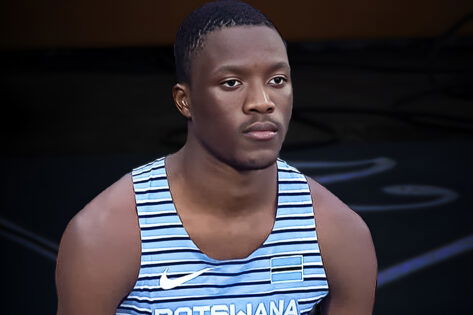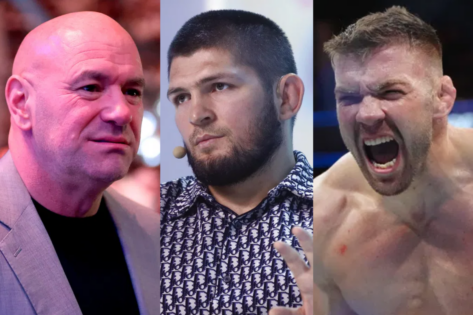Just a week before the World Athletics Relays in Guangzhou, a storm quietly brewed in the heart of Botswana’s athletics community. Letsile Tebogo, the sprint sensation who had become the pride of a nation, stepped back from the global stage. His words were carefully measured: “I wish to clarify that my withdrawal was not a decision taken lightly, nor without due consideration and engagement with relevant stakeholders.” To the outside world, it felt sudden. Why would the face of Botswana’s golden generation, who had fearlessly anchored the 4x400m relay team to Olympic silver in Paris, opt out just before a major competition? Was he rebelling against something?
The Olympic champion quickly reaffirmed his loyalty: “I remain fully committed to my country, the team, and the advancement of athletics in Botswana.” But the questions lingered. Behind closed doors, the Botswana Athletics Association quietly stated on May 5 that Tebogo, along with teammates Bayapo Ndori and Busang Collen Kebinatshipi, had withdrawn because of “personal reasons.” Tebogo’s confirmation via Facebook the next day didn’t silence the whispers—it amplified them.
In Botswana, the media began circling in on a different narrative: money. Reports surfaced of a dispute over athlete compensation. Had the nation’s brightest stars pulled out in protest? It wasn’t confirmed, but the timing and the silence spoke volumes. The absence of their most decorated sprinter from a crucial international event was a blow the team couldn’t hide. Then came Doha. Tebogo was back in his element, burning up the track to win the men’s 200m at the Diamond League.
But in the aftermath, when the spotlight moved from medals to microphones from Al Jazeera, he offered a comment that hinted at deeper truths—perhaps more revealing than anything he’d posted on Facebook: “It’s mostly down to infrastructure and support, but I am not entirely sure. However, I can see that Africa is looking towards investing in its athletes beyond distance running. Once the governments are on board, it makes a massive difference to the sport.”
It wasn’t a direct critique. In fact, it didn’t even need to be. In his words, there was both pride and frustration. Pride in the continent’s rising sprinting talent. Frustration at the systemic gaps holding it back. Was Letsile talking about Botswana? About the very challenges that may have led to the Guangzhou withdrawal? Perhaps.
Behind every medal and every victory lap is a struggle of athletes trying to chase world-class performances while juggling subpar facilities, uneven support, and uncertain compensation. And maybe, just maybe, Tebogo’s carefully crafted statements were the polite echo of a louder truth waiting to be acknowledged. The louder truth? There are several examples of it.
Letsile Tebogo is just one name from the bunch to protest
In the high-stakes drama of the Paris Olympics, the track often reveals more than just speed—it reveals stories of identity, struggle, and the quiet decisions that shape an athlete’s journey. And few stories capture that complexity, like those of Winfred Yavi and Annette Nneka Echikunwoke—two women who ran, threw, and persevered across borders. Yavi, now the Olympic champion and record holder in the women’s 3,000m steeplechase, stood on the podium draped in Bahrain’s red and white.
But her roots? They’re firmly planted in Kenya’s Rift Valley—arguably the most competitive patch of earth for middle-distance running on the planet. However, Bahrain offered what her home couldn’t: opportunity, infrastructure, and a chance. Back in Africa, the response was mixed. Pride in her origins. Disappointment that yet another star had left. And a recurring question: Why do so many Kenyan talents feel they have to go abroad to succeed?
On the other side of the Olympic narrative stands Annette Nneka Echikunwoke, a hammer thrower with roots in Nigeria but raised in the United States. In Tokyo 2020, she chose to represent her ancestral home—a decision made with heart, heritage, and pride. But instead of Olympic glory, she faced heartbreak. Despite qualifying, she never got to compete. The reason?
Nigeria’s Athletics Federation had failed to conduct mandatory out-of-competition tests. Echikunwoke, along with nine other athletes, was ruled out by the Athletics Integrity Unit (AIU). Her Olympic dream was dashed—not by injury, not by form, but by administrative negligence. But, in Paris, she stood on the podium—this time for the USA—with a silver medal around her neck.
The moment was bittersweet. A celebration of her resilience, yes—but also a quiet indictment of the missed opportunity for Nigeria. Well, Yavi and Echikunwoke’s stories aren’t unique. They are part of a growing diaspora of athletes forced to make impossible choices: between home and opportunity, pride and practicality.
The post Letsile Tebogo Leaves Strong Message for Government Shortly After Withdrawing From National Relay Team appeared first on EssentiallySports.



